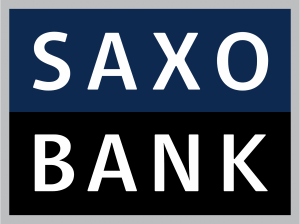Copy trading platforms may remain in regulatory limbo as MiFiD II is delayed
Government authorities often lag behind the Forex industry as this particular business is well known for its disruptive innovation, sometimes taking years or even decades to set up a proper legal framework in touch with the new realities that continue to come to light. As the MiFiD II seems to be getting postponed to January […]

Government authorities often lag behind the Forex industry as this particular business is well known for its disruptive innovation, sometimes taking years or even decades to set up a proper legal framework in touch with the new realities that continue to come to light.
As the MiFiD II seems to be getting postponed to January 2018, one of the many regulatory issues urging to be addressed resides in copy trading and other similar services. These activities that, some say, stand in blurring lines between advisory business and broadcasting market content, are found to be considered as portfolio management services according to some authorities.
Despite having been around since 2005, since Lior Nabat’s Mirror Trader invention at Tradency, social trading platforms evolve and prosper with no clear insight of what will happen in the near future, risking a potential crackdown on copy trading. Compliance specialists have already been advising firms on how to adapt their business structure to be in consonance to requirements, particularly under MiFiD II.
For example, traders with no broker wanting to open an account at Zulutrade can now only open an account with Zulutrade’s broker, AAAFX, as the platform no longer affiliates to other brokers. At the account opening, they now add a MiFiD questionnaire to assess the client’s understanding of trading.
Other changes in “traders” performance page, connecting and disconnecting signal providers, settings page and ZuluGuard, as well as customizing the replication process and deposits/withdrawals were made to be in line to what compliance departments consider an appropriate reading of the MiFiD II rules. However, the postponement to January 2018 of these rules will keep the industry blindfolded until then.
The Australian Securities and Investments Commission (ASIC) considers services providing copy trading, PAMM, MAM, and Expert Advisors as Managed Discretionary Account (MDA) operators and should hold an appropriate financial services license (AFSL) and comply with MDA requirements, such as a MDA contract with an investment program and statement of advice for each client.
In 2014, the UK Financial Conduct Authority first shared their view that allowing investors to trade by automatically copying another investor’s trades generally as portfolio or investment management.
“Typically, retail traders mimic the trades of other users through contracts for difference (CFD) platforms. These platforms integrate information sharing and social media with online CFD trading. We classify copy trading as portfolio or investment management where no manual input is clear from the account This entails standard regulatory obligations for authorized management”, said the statement by the FCA first published in 12 May 2015 and later updated in 29 January 2016. Exceptions to the rule exist when there is no automatic order execution.
“The client may take investment decisions rather than the service provider to buy or sell the individual investments. For example:
The trade signals are investment advice (or a general recommendation), and the client must confirm each recommendation before any order is executed or transmitted for execution on their The trade signals are fully determined by the client, who must set the detailed limits for each signal/order/transaction, such as the precise market conditions that will trigger a particular signal (e.g. purchase or sell instrument A when its price on market B reaches level C).”
The ESMA statement in 2012 pointed to the direction of regulation in Europe, sharing the opinion that a service that allows a client to choose one or more third parties that provide trading signals, and has the client’s authorization to execute orders (or transmit them for execution), such practices are to be considered as Portfolio Management.
Such interpretation might lead regulators to require either the operator of the platform or the customer’s brokerage to hold a Portfolio Management license. In case of platforms that allow manual trading, an Investment Advice license might be needed, unless the operator abstains from making specific recommendations, from promoting or solicit particular trades, and from ranking trades based on recommendation criteria.
Uncertainty, however, remains the keyword under MiFiD II. And while firms can redesign their business and make a real effort to comply to requirements, an unclear environment could remain until 2018.









